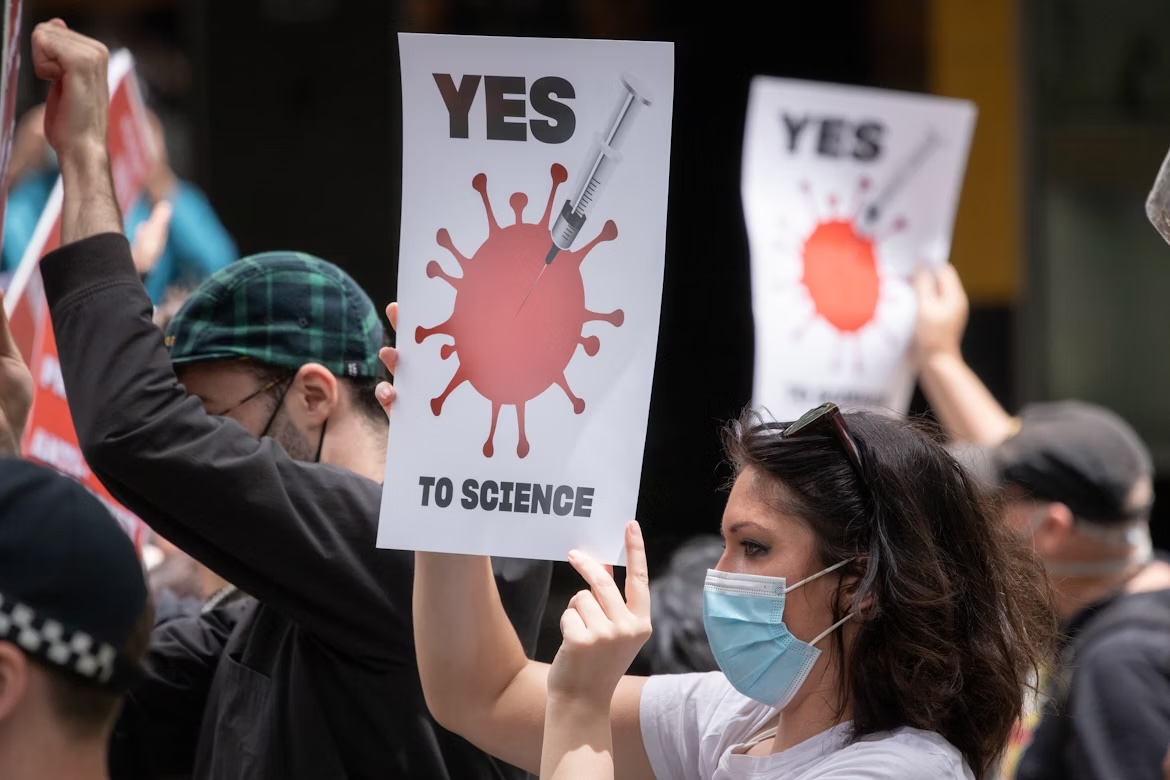 #News
#News
Support for science in the US resists polarization and funding cuts
Seven in ten Americans recognize the concrete benefits of science in their own personal experiences, according to an ASTC survey
 Even in the face of political polarization and budget cuts, most Americans remain supportive of science, survey shows | Image: Mitchell Luo/Unsplash
Even in the face of political polarization and budget cuts, most Americans remain supportive of science, survey shows | Image: Mitchell Luo/Unsplash
Even in the face of funding cuts under the Trump administration and growing political polarization in the United States, most Americans continue to value science. These are the findings of an opinion survey conducted by the Association of Science and Technology Centers (ASTC) in April to identify public attitudes and perceptions of the country’s scientific ecosystem.
The nonprofit organization surveyed 1,017 adults across various age groups and found that seven in ten agree or strongly agree that science “benefits people like me,” indicating that support for science in the US is anchored in concrete personal experiences.
The survey also revealed a high degree of public trust in scientific information for day-to-day decision-making. Around 94% of respondents said they turn to such information on a weekly basis, including:
- Weather forecasts and alerts
- Nutritional information
- Economic projections
- Public health updates
- Air quality data
However, when asked about their main concerns regarding federal budget cuts to science, less than 10% of respondents linked those cuts to a possible slowdown in the production of the scientific information they consume daily.
This reveals a disconnect: while Americans frequently make use of scientific data, few see research funding cuts as an immediate, tangible threat to their day-to-day lives.
The greatest concerns related to economic impacts, preparedness for future public health emergencies, and food and drug safety.
The responses also revealed differences between generations. Among baby boomers (born in the post-war period between 1946 and 1964), 27% were concerned about the possibility of the US ceasing to be a leader in science and technology—significantly higher than the 18% seen among other generations.
For millennials (born early 1980s to mid-1990s) and Gen Z (late 1990s to early 2000s), the top priority was climate change, cited by 16% compared to just 6% of baby boomers.
No systematic rejection of science
At the same time, many respondents revealed a limited awareness of recent changes in federal funding for science: 77% said they had heard about cuts or changes to key programs, but only 15% could describe them in detail. Nearly half believed private entities could make up for any shortfalls caused by reduced federal funding provided to universities and research institutions.
Overall, the results of the ASTC survey indicate that despite recent tensions, there seems to be no widespread rejection of science in the United States.
Despite deep divisions between Democrats and Republicans, most Republican voters expressed support for science and concern about the recent cuts.
Still, there are areas of disagreement: 91% of Democrats said they were aware of and concerned that federal policy changes, program cancelations, and budget cuts could affect the nation’s ability to attract and retain top scientists, compared to just 55% of Republicans.
The survey also found that American citizens want to participate more actively in scientific debate, rather than just being passive recipients of research results. Many expressed an interest in acting as partners, shaping how science influences the collective future.
Other key findings include:
- 61% of respondents agreed or strongly agreed that “members of the public should have a say in whether and how new scientific discoveries are introduced in society based on the benefits and downsides.”
- 73% said that “scientists should participate in activities to learn from the public about how their work affects the average person.”
- 74% believed that “federally funded scientific research should be freely available to the public.”
*
This article may be republished online under the CC-BY-NC-ND Creative Commons license.
The text must not be edited and the author(s) and source (Science Arena) must be credited.


